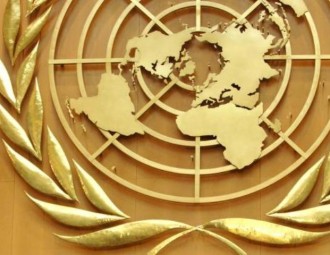Freelance journalists from Homel filed a second complaint to the UN Human Rights Committee

A freelance journalist based in Homel assumes that her rights for getting and spreading information are violated.
Larysa Shchyrakova, a freelance journalist and representative of the Belarusian Association of Journalists (BAJ) in Homel, has complained to the UN Human Rights Committee about the violations of her right to receive and disseminate information (freedom of expression), and the right to defense in court (a fair trial).
On March 12, the Homel Central District Court sentenced Larysa Shchyrakova, along with Viktar Kazachok, to a heavy fine for cooperating with the Polish TV channel “Belsat”, press service of BAJ informs.
“In Belarus, I have gone through all the stages of judicial protection and never succeeded. So I used the only international mechanism to protect my rights,” said the journalist.
Lawyer Leanid Sudalenka, who represented the journalist in court, said that the case highlighted a number of contradictions of the national legislation to the country’s international treaties.
“The International Covenant on Civil and Political Rights guarantees everyone the freedom to gather and disseminate information, the Media Law, however, restricts the essence of this right. Everyone has the right freely to choose a defender in court, while our legislator has limited this right only to a lawyer. I am confident that the Committee will find a violation of the journalist’s rights,” said the lawyer.
Although the Belarusian authorities have not yet reacted to any of the decisions issued by the UN Human Rights Committee, the freelance journalist says that the issue of implementation of decisions taken in Geneva is a question of time.
“In addition to establishing a violation of my rights, the complaint also raised the question of the responsibilities of the government of Belarus to amend the national legislation in such a way that its application does not lead to further violations described by me,” sums up Larysa Shchyrakova.
-
03.01
-
07.10
-
22.09
-
17.08
-
12.08
-
30.09



























